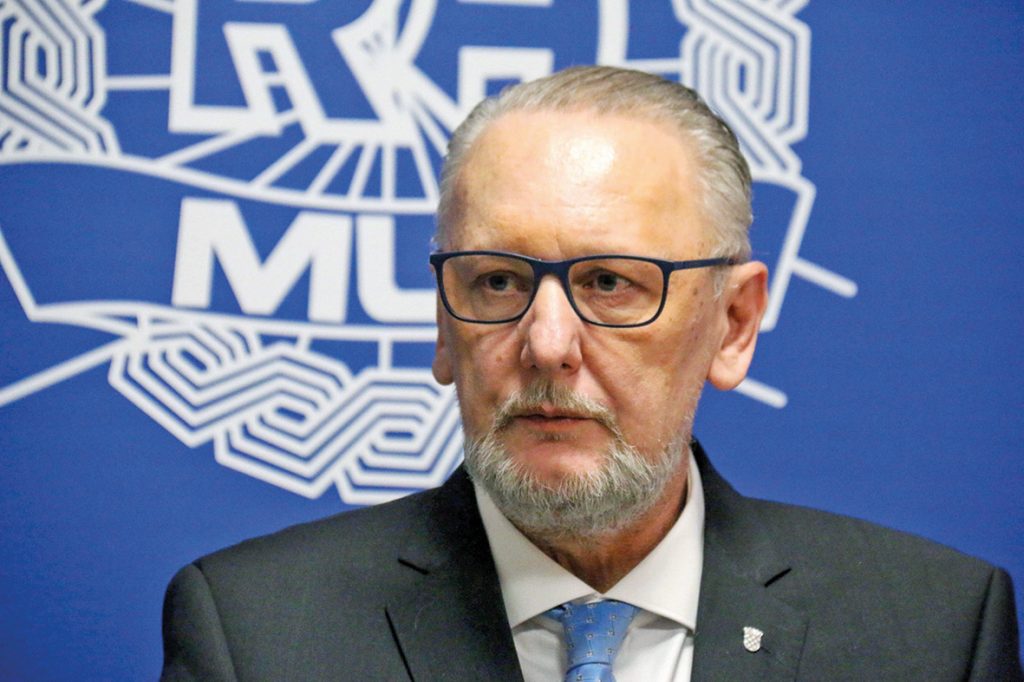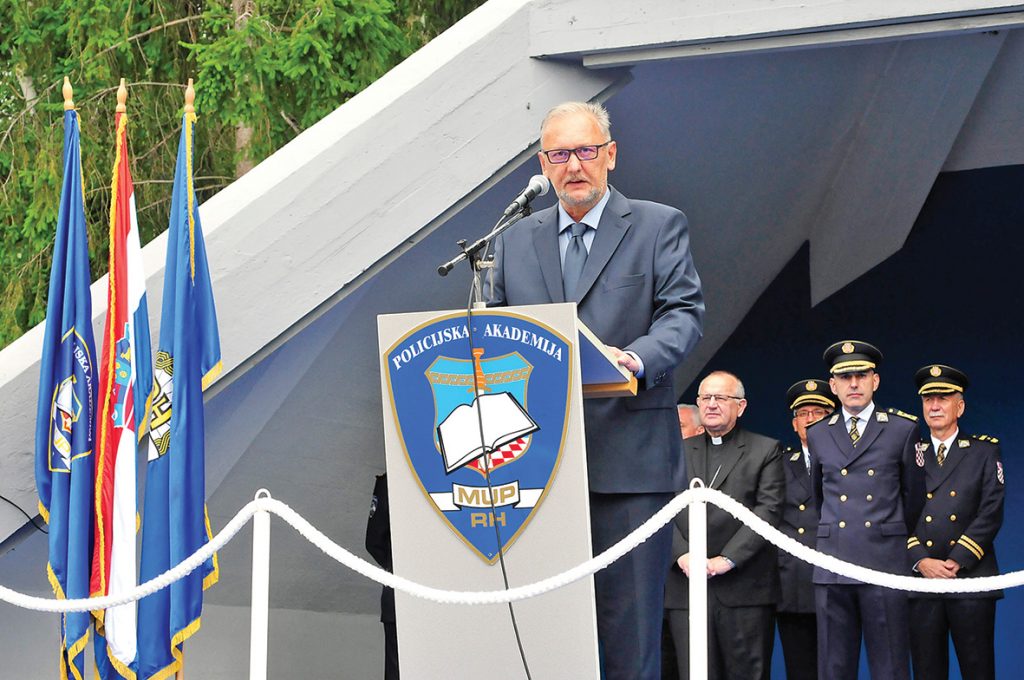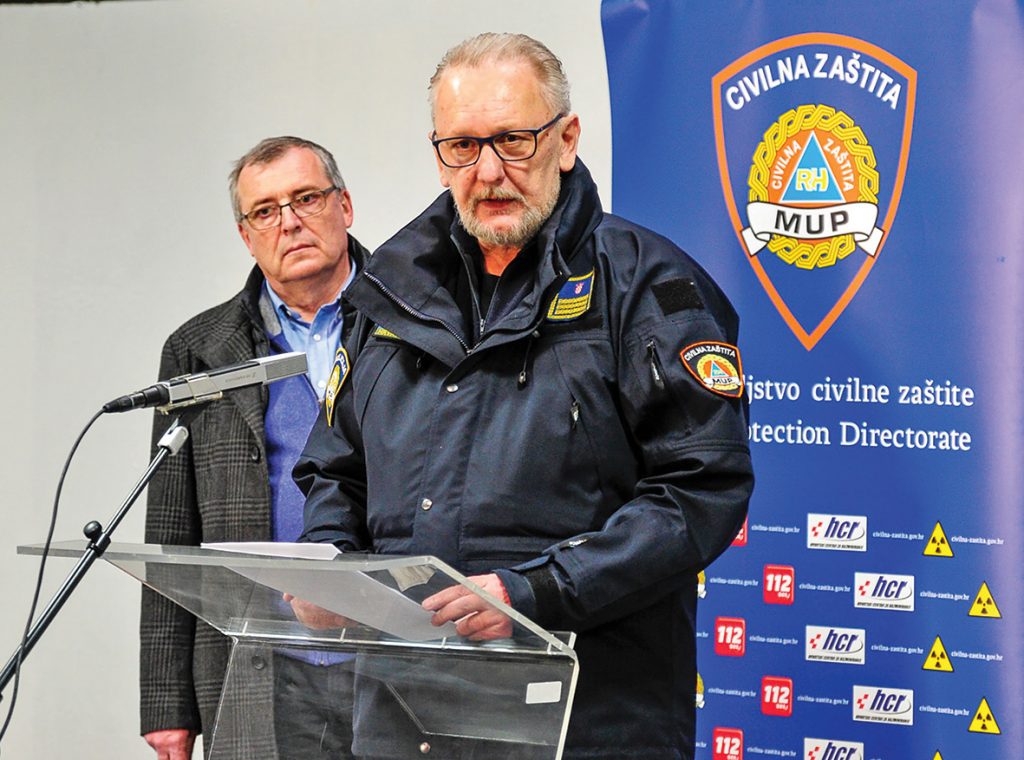All the research has shown that citizens have positively evaluated the Croatian government’s response to the crisis caused by the pandemic. That is why we have justifiably regained their trust at the elections, because, in the second half, we will have to repair the economic consequences of the crisis.

Not many countries have faced such challenges as Croatia: the pandemic, an earthquake in the capital city and possible unforeseeable consequences for the tourism industry and many other businesses, and thus people’s jobs. However, Davor Božinović, the Croatian Foreign Minister who was directly in charge of responding to the pandemic, believes that the citizens should look at the entire situation, including the recently held elections, from the viewpoint of answering the following question – who would they trust to bring their ship back to a safe harbour? Mr Božinović believes that one should stick to well-tested wisdom that the winning team should not be changed.
In your opinion, how has the situation with the COVID 19 pandemic affected the electorate and the position of political parties?
Croatia reacted to the pandemic early and achieved excellent results that make us one of the most successful countries in the world in the fight against the coronavirus.
We scored well in all the parameters – from the number of sick, deceased and cured to the fact that the health system was not overloaded at any time.
In a situation that has put many health systems to the test, Croatia has achieved a balance between several key factors, namely the lockdown measure, readiness and functioning of all the necessary systems and services, maintaining the necessary economic activities, and most importantly, the trust of our citizens who have unquestionably been our greatest allies, conscientious, responsible and standing in solidarity. Such an approach is already called the “Croatian model”.
Croatia’s capital was hit by a devastating earthquake amid the pandemic, so we simultaneously had to deal with two crises that were sending opposite messages – one was “stay at home” while the other, considering the horror of the earthquake, read “get out to a safe place”. We organized ourselves in the best possible way even in that situation.
With intervention measures worth more than 5 billion kunas, we have enabled the economy and citizens to overcome the first period of the crisis and resume normal activities after the lockdown.
All of this required responsibility, quick adaptability, and reflection at least one step ahead of an unknown virus and the disease with a “thousand faces” that infected more than eight million people in a matter of months.
Citizens were able to compare the situation and the reaction of the authorities in Croatia with the situation in various other countries in real-time. All research has shown that citizens believe that this Government has managed the crisis efficiently and with well-balanced reactions.
There is a strong reason why the citizens continue to trust us because we are facing the second half of the game, i.e. rectifying the economic consequences of the crisis and maintaining the upward trend that we had before the pandemic.

What are the key messages that HDZ sent to the voters, and what did you do to win over the undecided voters?
The key message was that we wanted to be at the helm of Croatia as a safe country, and that means a country of social security, solidarity, inclusion, justice and stable institutions. This also means that Croatia is a well-positioned member and a reliable partner of the European Union.
The undecided voters have also noticed the facts and all the achievements of this Government. Before the onset of the coronavirus pandemic, we had created 105,000 jobs and had the highest employment rate so far. Pensions rose twice as much and the minimum wage three times as much compared to the terms of the previous governments, while at the same time, we significantly unburdened the citizens and businesses, especially the young people.
“We have successfully protected Croatia from a possible wave of migrants, ensured security to our and European citizens, and were ranked among the record-breaking tourist destinations”
Now more than ever, the importance of public service efficiency, financial resilience and the role of the state in managing major crises have been demonstrated. In recent years, we have clearly shown that we know how to deal with various crises and challenges of today, from the largest corporate restructuring in Europe in response to the bankruptcy of the largest Croatian and regional corporation, which threatened to cause a chain effect in the entire economy, to numerous issues of economic transition.
We have dealt fires, floods, devastating earthquakes, the coronavirus pandemic and the economic shock, and during all that time, we have remained a peaceful, secure and stable country on an upward economic trajectory.
Even this global crisis has not undermined Croatia’s investment credit rating achieved during our term in the office which reflects the well-calibrated management of public finances over the past three years, public debt reduction and healthy economic growth that is not based on borrowing.
We are close to Schengen and the introduction of the Euro, which are the strategic goals of this HDZ-led government. We have met all the technical conditions for Schengen membership and with a number of arguments, we can certainly testify that Croatia in Schengen is in the best interest of the European Union.

When you sum up the results of work done by the Ministry you lead, what is it that you are especially proud of and what could be done better?
I would like to single out the equipping of the Police and the improvement of the material status of Croatian police officers. I am particularly pleased that, in the past three years, we have managed to systematically solve long-standing problems and correct several injustices from past mandates. Interest in joining the police has increased in the last three years.
Safety is a Croatian brand. Croatia ranks among the top safe countries. After all, we would not be one of the most attractive tourist destinations if people do not feel safe in our country.
In the modern world, many countries, including the richest ones, with the longest democratic traditions, are facing serious problems regarding the safety of their cities and people. That’s not the case in Croatia. Here, you can be perfectly relaxed.
The Croatian police are a qualified and reliable partner to all international security and police organizations in the fight against organized crime. Over the past three years, the Croatian police has participated in a series of large international campaigns against drug, arms and human traffickers. Our police have been recording extraordinary results here.
We are very successful in protecting the Croatian and European borders from illegal migration and we have the strongest border police in Europe. In addition to meeting all technical requirements, we have demonstrated that Croatia joining the Schengen zone is in the best European interest because Croatia has a balanced, responsible and professional approach to the protection of its own and European borders and dealing with the issue of illegal migration.
The so-called Balkan route has opened up after the crisis with COVID-19 erupted. How many migrants have tried to enter Croatia illegally, and what is done with them when you catch them on the territory of the Republic of Croatia? Is there any realistic solution to this problem?
The phenomenon of illegal migration, which is associated with severe and cruel organized crime, exists on our doorstep all the time and will continue to exist.
Croatia has set itself up in the only possible way – we do not allow illegal migration and we are successfully fighting the crime that comes with it. We have the right to such an attitude and to protect our border, just like any other state.
We are in favour of solidarity, but at the same time, we recognize that there is no single European approach to this problem and we support solutions that lead to agreement and that evenly distribute the burden of migration. We are ready to help those who need help, but we are not ready to be a gathering place for illegal migrants.
We reject the accusations of various organizations and political groups on the left side of the political spectrum that attribute every injury sustained by the migrants to the Croatian police. In the world of illegal migration, there is a lot of violence and very difficult situations – it is a life on the edge in which migrants are primarily victims of organized crime and mutual confrontations. After trying to cross the border illegally twenty times, they probably think that the accusations against the Croatian police could increase their chances.
Ultimately, they are not helping anyone; neither illegal migrants nor the countries they are trying to pass through illegally.
They do not send the only real message to people in need: “Don’t do this, it is dangerous and forbidden”, and in the end, the Croatian police often ends up helping the migrants by saving their lives in very dangerous and difficult situations. In the first five months of this year, we recorded about 10 per cent fewer illegal border crossings, which is expected due to the situation with the coronavirus epidemic. With the easing of measures, we expect the pressure on Croatian borders to increase, especially since the migrant camps in Bosnia are located directly next to the Croatian border.
“On a wider scale, we are very thoughtfully arranging opportunities for the most favourable borrowing in the domestic and foreign financial markets to overcome the consequences of the corona crisis this year”
Do you believe you have an answer to the economic crisis in Croatia or is this crisis maybe too much for any government, considering its global dimension?
Yes, we have the answer and we accept responsibility for such a demanding task. We have a plan and programme with coverage.
One of the major projects we will initiate is the reconstruction of Zagreb. We have applied for the EU funds to repair the damage, and an advance of 100 euro million will arrive in the summer. The total damage is 11.5 billion euro. Ten seconds of earthquake brought us 10 years of a complex process of rebuilding the city.
In the meantime, we have already signed on a USD 200 million loan with the World Bank for the reconstruction of schools and hospitals, we have secured money for emergency interventions through budget revision, and we are also financing rents for citizens who cannot be in their homes.
On a wider scale, we are very thoughtfully arranging opportunities for the most favourable borrowing in the domestic and foreign financial markets to overcome the consequences of the corona-induced crisis this year.
We experienced this crisis more resiliently and were able to provide massive support to the private sector – half a million people were paid wages for three months of the crisis, thus preventing the creation of a new mass of unemployed people. Since the beginning of the crisis, we have reduced the burden on citizens and the economy by almost 150 million euro.
We are introducing new measures to help the economy and the first in line is a measure to support part-time work. At the same time, we are doing everything we can to get through this tourist season to the best of our ability in the given circumstances. We are encouraged by the arrival of more than 100,000 tourists, the announcement of over 350,000 arrivals via the EnterCroatia system, as well as recommendations by the world’s leading media that Croatia is a country that has resisted the epidemic and is a safe and comfortable vacation spot. Megayachts are also coming and there is a noticeable demand for more luxurious accommodation.
We can be satisfied with the European Commission’s economic recovery plan. 10 billion euro are planned for Croatia, of which 7.3 billion euro are grants, and 2.65 billion are possible loans. The draft of the Multiannual Financial Framework shows that the allocation for Croatia will probably be more generous than the draft that was on the table in February showed.
In short, we want and are convinced that we can provide Croatia with 20 billion euro in the next seven years as a safety net for economic recovery.